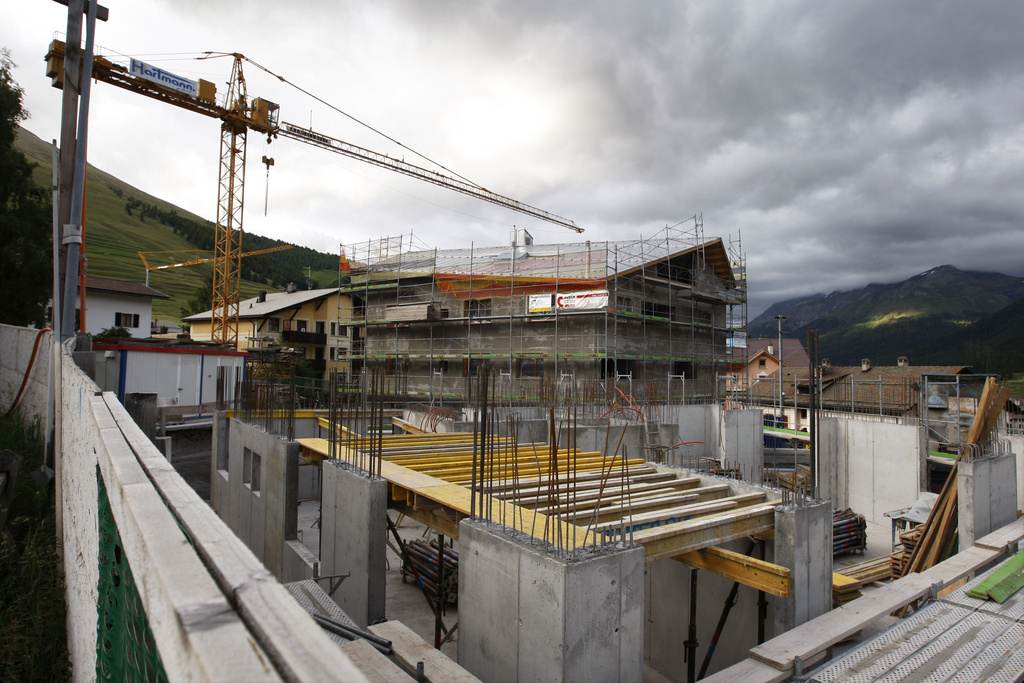
Voters say no to longer holidays

The Swiss have voted against increasing statutory holiday entitlement to six weeks from the current four.
Voters also turned down the re-introduction of an agreement on fixed book prices. But they looked set to narrowly approve a limit on the number of new holiday homes.
The gfs.bern polling institute said incomplete results showed 67 per cent of voters had turned down the holiday initiative, as had all but one canton – Jura. To be passed, an initiative has to have the support of a majority of voters as well as a majority of the 26 cantons.
Most political parties, the business community and the government had warned the initiative would result in higher labour costs and be detrimental to the economy.
Supporters countered that ever increasing stress at the workplace justifies longer annual holidays.
Under Swiss law, employees get a minimum of four weeks per year, but some industrial sectors are granting more generous entitlements.
Second homes
An initiative to set a maximum quota of 20 per cent for holiday homes in every commune appeared to have been accepted. Partial results showed 51 per cent in favour.
The environmental organisation that brought the initiative argued the construction boom in mountain resorts had led to a waste of natural resources and massively boosted property prices, disadvantaging the local population.
There are an estimated 500,000 second homes in Switzerland accounting for about 12 per cent of total housing.
Opponents – including the business community and the tourist industry – said the proposed limit breached the autonomy of the local and cantonal authorities under the federalist system.
The government and parliament also opposed the initiative, saying reforms of the zoning law – in force since last July – were a more suitable political instrument to combat overbuilding.

More
People’s initiative
Books
Also on Sunday, voters rejected the planned re-introduction of an agreement on fixed book prices. Projections showed only 42 per cent in favour of the agreement.
No cantonal majority is required in this case.
Resale price maintenance regulations were repealed in the French-speaking part of Switzerland in the early 1990s, while in the main German-speaking region the book agreement was abolished only in 2007.
About 500 publishers in Switzerland produce around 10,000 books annually in all four national languages.
Tax breaks for home buyers
An initiative aimed at granting tax breaks to Swiss saving up to acquire a house or an apartment failed to convince voters. Just 45 per cent said yes. A majority of cantons were against.
Supporters had argued cantons should be allowed to grant fiscal incentives to raise the traditionally low rate of home ownership in Switzerland.
Voter turnout on Sunday was around 46 per cent.
Under Swiss law, initiatives – equivalent to a change in the constitution – require both a majority of voters and a majority of the 26 cantons to pass. For a referendum a majority of voters is sufficient.
About 5.1 million citizens, including 136,000 registered Swiss expatriates, were eligible to participate in the five nationwide ballots on March 11.
Votes and elections are also scheduled in many cantons and at a local level on the same day.
It is the first in a series of four nationwide ballots scheduled this year.
As part of ongoing trials with e-voting, around 122,000 citizens, mainly Swiss abroad, were able to cast their ballots online.
Five different issues were at stake on March 11:
An initiative by trade unions for a minimum six-week annual holiday.
An initiative by an environmental group to cap the number of holiday homes at 20% at a local level across the country.
An initiative allowing cantons to grant tax breaks for future home owners.
A constitutional amendment on regulations for casinos and lotteries, including prevention efforts for gambling addiction.
A referendum challenging parliament’s decision to re-introduce a fixed book price agreement.

In compliance with the JTI standards
More: SWI swissinfo.ch certified by the Journalism Trust Initiative


























You can find an overview of ongoing debates with our journalists here . Please join us!
If you want to start a conversation about a topic raised in this article or want to report factual errors, email us at english@swissinfo.ch.